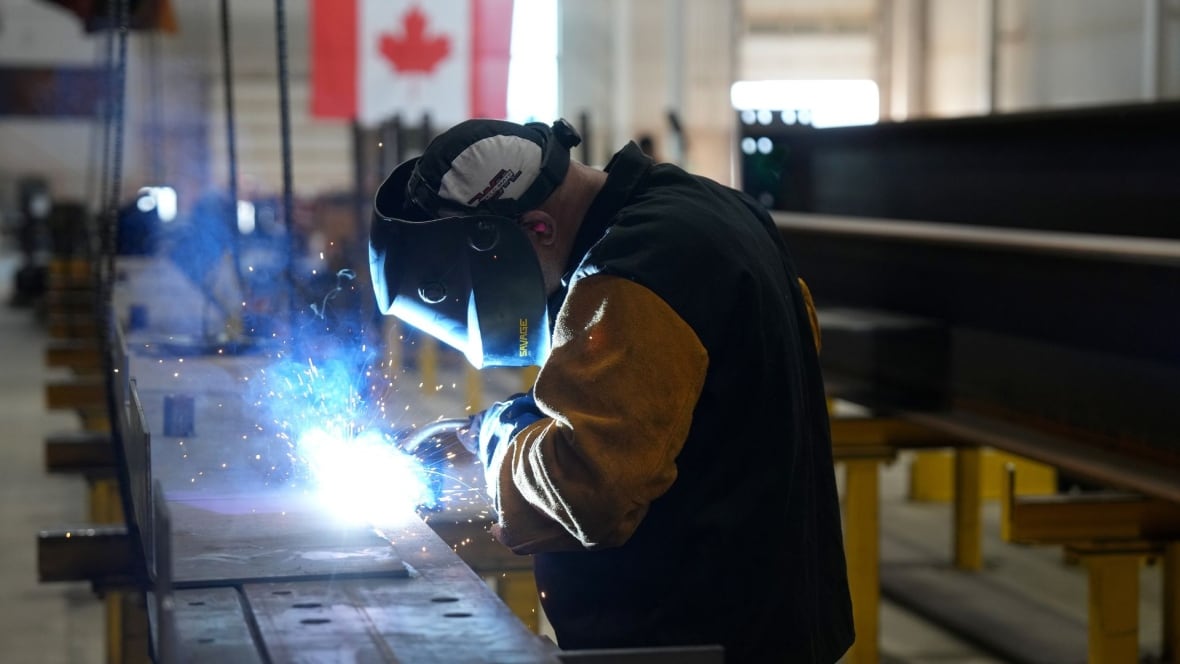Why Trump's deals with the EU, Japan may not be templates for Canada in trade talks

U.S. President Donald Trump's successive announcements of deals setting baseline tariffs on the European Union and Japan are prompting questions about whether they're a road map for Canada to follow in trade talks.
Trump and European Commission President Ursula von der Leyen described the bones of an agreement on Sunday.
It sets across-the-board tariffs of 15 per cent on most European Union exports to the United States, along with a commitment by Europe to invest $600 billion US in the American economy and spend $750 billion on U.S. energy products — although there's plenty of fine print still to come.
That makes it broadly comparable to the deal Trump announced last week with Japan: a 15 per cent across-the-board tariff and a Japanese commitment to invest $550 billion in the U.S.
Trump was threatening to hit Europe with 30 per cent baseline tariffs and Japan with 25 per cent on Aug. 1, so both trading blocs are selling the deals as wins.
Because Canada is facing the threat of 35 per cent tariffs on some goods on the same date, does that mean Canada should be aiming for a similar agreement?
Prime Minister Mark Carney certainly isn't saying so. Asked whether any forthcoming deal will be "in the ballpark" of those 15 per cent baseline tariffs, he emphasized the differences between Europe's and Canada's trading relationship with the U.S.
"We are in a different position, and that is why these negotiations ... are different," Carney said on Monday, citing Canada's geographical closeness and energy exports to the U.S.
"Europe, in that agreement yesterday, made commitments to buy American energy," he said at a news conference in Prince Edward Island. "America needs Canadian energy."

There are plenty of reasons why a 15 per cent baseline tariff rate is not something for Canada to aspire to, given that its economy is proportionally far more dependent on the U.S. market than Europe's and Japan's are.
Jonathan O'Hara, an international trade lawyer in the Ottawa law office of McMillan LLP, said Canada should set its sights on a better deal than the EU or Japan negotiated since it's already so tightly integrated with the American economy.
"On a broad level, having some kind of across-the-board tariffs, I think, would be very difficult for Canada to accept," O'Hara said in a weekend interview with CBC News.

Yet it appears that Canada doesn't actually face the prospect of tariffs that are truly across-the-board. That's because it has something that neither the European Union nor Japan have: an actual free-trade deal.
Trump's "fentanyl emergency" tariffs, currently set at 25 per cent — which he's threatening to raise to 35 per cent on Friday — hit only those goods that don't comply with the rules of origin in the Canada-U.S.-Mexico Agreement (CUSMA).
That means the vast bulk of Canada's exports to the U.S. are currently crossing the border tariff-free.
Steel and aluminum tariffs a big questionThat may be why Carney's Liberal government does not feel the same sort of pressure as Europe and Japan to get a deal on Trump's timeline, said Drew Fagan, a professor at the University of Toronto's Munk School of Global Affairs and Public Policy.
"Overall, the average tariff on Canadian goods going into the United States is about as low as any place in the world," he told CBC News.
"What's important for us is that the [CUSMA] free-trade agreement continues to hold. Whether it will in the future, of course, is a fundamental question."
The biggest exceptions to Canada's mostly tariff-free access to the U.S. are steel and aluminum, hit by Trump's 50 per cent global rate as he tries to prop up that sector at home.

In their deals reached with the U.S., neither the EU nor Japan are let off the hook from that tariff. While Canada is surely angling for something better on steel and aluminum — such as the U.K.'s 25 per cent tariff, potentially headed to zero — the European and Japanese agreements suggest that will be tough to achieve.
Carlo Dade, director of international policy at the University of Calgary's School of Public Policy, said Canada will likely face a tariff rate comparable to Europe's.
"The Americans have decided to readjust the terms of trade," Dade said. "The price of access to the U.S. market is going up globally. It appears everyone is going to have to pay an increased cost."
There are plenty of signs to suggest that the prospects are slim for Canada to reach a deal by Trump's deadline of Friday: Carney said the talks are complex, his top trade negotiators are downplaying the importance of the deadline and Trump himself is saying there may not be a deal at all.
cbc.ca





